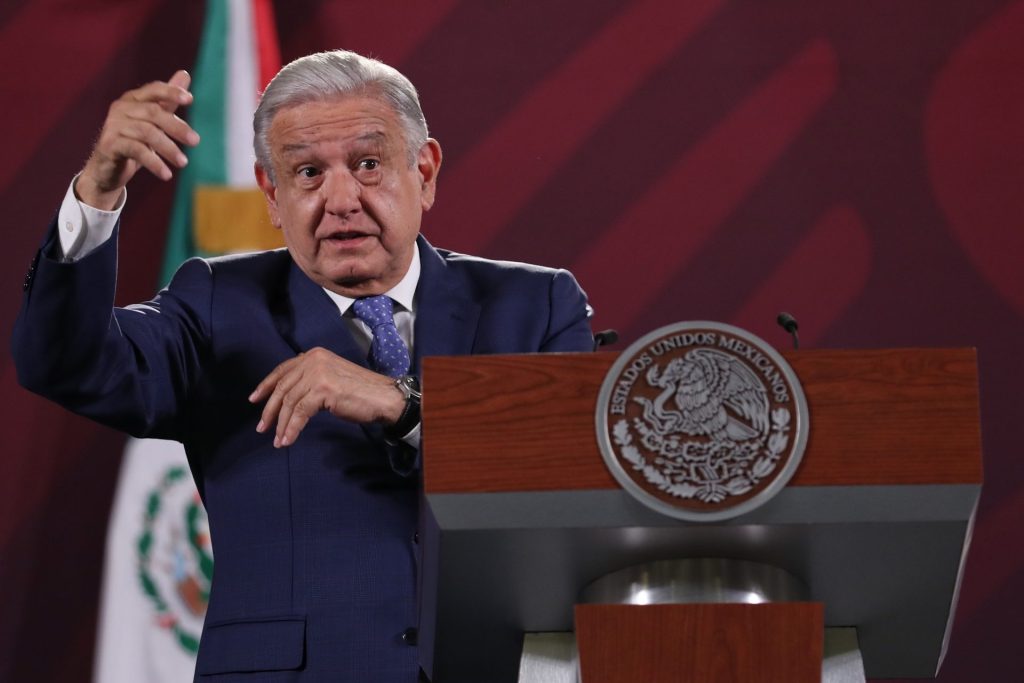By Jacob Sanchez |
Mexico City (EFE).- After the negotiations between Mexico and Citigroup to sell Banamex to the private sector in that country failed due to the conditions imposed by the Mexican president, Andrés Manuel López Obrador, the president now plans to assume that acquisition alone and create a large state bank, something that raises doubts among analysts.
“If they do not want to sell, then we are going to talk to them, that is, we do not rule out the possibility (…) because we do need a bank (…), it is an opportunity,” said López Obrador from the National Palace.
The president said that his acquisition could be through a public-private association and assured that the Mexican government has sound finances and has the capacity to borrow.
Doubts about the state bank
The director of Economic and Financial Analysis of Banco Base, Gabriela Siller, considered that with her announcement, Citi removed all the “fear” and “risk aversion” that President López Obrador had caused in the Banamex purchase-sale process. and prevent its value from diminishing.
He also pointed out that a possible purchase by the Mexican government “would not be good for anyone. Not for the government, not for the company, not for anyone”.
In this coincided an analysis of Bank of America, which concluded that the purchase by the Mexican government could impact the established banking sector, since it is the fourth largest bank in the country.
In addition, the deputy director of Economic Analysis at the Monex financial group, Janneth Quiroz, stated that going out in Mexico would increase interest, knowing more closely that it is “a profitable bank” for which she predicted “good demand”.
Likewise, Daniel Becker, a member of the Association of Banks of Mexico, pointed out that Banamex’s listing on the stock market would be positive, since it would end years of dry appetite for risk in the Mexican financial market, amid fewer issuers. and listed shares.
process truncated
Citi announced in January 2022 its intention to sell part of its business in Mexico, mainly its consumer portfolio and part of its equity, while it would maintain its large corporate portfolio.
Since then, López Obrador conditioned its sale on factors such as that it was sold to Mexican capital, that taxes were paid for the transaction, that there were no outstanding tax balances, and that Banamex’s cultural heritage remained in the country.
Some of the main banks in Mexico joined the bid, such as Inbursa, owned by tycoon Carlos Slim; Banco Azteca, Banorte, Santander and Mifel, among others.

However, one by one they were abandoning their intention to the last businessman, Grupo México, in the midst of the occupation by the Armed Forces of a concession of the company for 120 kilometers of railways, which has been described as expropriation.
This Wednesday, Citi announced that it will put aside negotiations between individuals and defined that the sale of Banamex will take place through the stock market through an initial public offering (OPI) in 2025.
In this sense, López Obrador said that the public administration could have up to 3,000 million dollars and offer shares for 2,000 million dollars, if the sale value is still around 7,000 million dollars.
“It is a good business,” said López Obrador, since he maintained that the main client of the banks is the Government.
Banamex, owned by Citigroup for two decades
Banamex, the country’s fourth largest banking group, was bought in 2001 by Citigroup for 12.5 billion dollars, and currently has 1,300 branches, 9,000 ATMs, 6,600 commercial clients and 12.7 million private clients, in addition to 10 million fund clients. of pensions.
Citi specified, however, that the IPO would be completed in 2025, which implies that the president will have left power, since presidential re-election is not allowed in Mexico and the next elections are in June 2024.
Siller explained that for this operation in Mexico or the United States, it will require the authorization of the competent authority, which in the country is the National Banking and Securities Commission.
After knowing the decision of the US group, the Mexican stock markets reacted immediately and raised their hands to be part of their foray into the Mexican stock market.
On the one hand, the Mexican Stock Exchange (BMV) indicated that it has “the infrastructure, the window for access to financing and the capacity to accompany a process of this size and importance”, while the Institutional Stock Exchange (Biva ) highlighted that they are “the best option” to carry out this operation because they are the “most technological and innovative stock market”.






